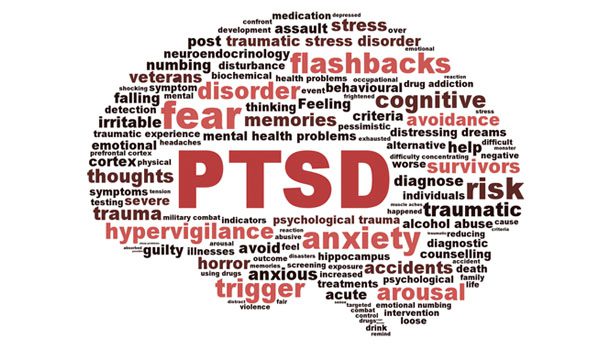Roaring sound of a speeding train, the vibrating railway tracks and platform, the sound of the train honk. It still gives me a jitter and immense pain. 16 years have passed since I lost my beloved father in a rail-road accident in front of my own eyes. We lost our father, I sustained major injuries. Not a single train journey after that has been an easy task for me since then. During the earlier days I used to feel panicky and stressed out in each and every train journey. The memories and bitter experiences of the fateful day would flash in front of my eyes on and off. Today, after so many years…the panicky and maladaptive responses have receded. But, the emotional scars are yet to be buried.
Like me, many of you would be struggling with the painful memories and the psychophysical repercussions of a traumatic event. Technically, this is known as Post-Traumatic Stress Disorder or PTSD. It occurs when the traumatic event becomes too overwhelming to bear for someone. It also occurs when you cannot effectively cope up with a traumatic life event.
PTSD symptoms and risk factors
Here is a symptom checklist below that epitomizes the physical and psychological issues a person with PTSD faces. PTSD sometimes increases the risk factors of other mental health issues too. Therefore, an early diagnosis and treatment of the same is very important.
Sypmtoms of PTSD
| Physiological Symptoms | Psychological Symptoms |
| Increased heart rate | Anxiety |
| Palpitations | Stress |
| Increased skin sensitivity | Increased tension |
| Respiratory problems | Insomnia |
| Profused sweating | Depression |
| Speech problems | Apathy |
| Trembling /Shaking | Emotional sensitivity |
| Changes in eating habits | Anger/aggression/hostility |
| Tremors | Isolation |
| Dry mouth | Lack of interest |
| Frequent urination | Intense flashbacks |
| Changes in bowel control | Problems in memory, attention and concentration |
PTSD and Risk Factors
Sometimes PTSD leads to other mental and physiological health problems. The disorders that can exist as a co-morbid illness along with PTSD are:
- Suicidal thoughts and actions
- Self-harm or harming others
- Eating disorders
- Clinical Depression
- Cardiovascular problems
- Muscular pains
- Neurochemical imbalance
When we face a traumatic situation, most of our well-wishers and relatives try to console us. This is good, I am not against it. When I am in deep pain or despair I also need someone by my side. I have seen many relatives saying that “time is the best healer”. Well, this is also true. But, not always! You never know how hard a trauma strikes into the chords of your heart and mind. If you waste your time ignoring the signals and symptoms then the best healer can turn into a worst killer. So when you or any of your near n dear ones face a traumatic event, do not let the scars or wounds open. It is necessary to heal the emotional/mental wounds too. Even at the slightest feeling of the symptoms I had mentioned above, try to seek medical assistance or the help of a psychologist/psychiatrist as soon as possible.
Life is a rough and tough journey. It has never been easy for any one. We all need to travel through it through the storms, obstacles, pits and ditches. Victory and happiness will be ours only when we fall down and rise up with all our might. Sorrows and pains are quite natural. We cannot avoid it. But, with effective strategies you can surely deal with it successfully. The main Mantra to deal with PTSD is: Face the trauma, do not let the physical and mental wounds open, deal with the issues and resolve them as soon as you can. It is the unresolved and unsettled silt of pains that sinks down and prick you as PTSD symptoms from time to time.
“When we feel weak, we drop our heads on the shoulders of others. Don’t get mad when someone does that. Be honored. For that person trusted you enough to, even if subtly, ask you for help.” – Lori Goodwin
Best Wishes,
Sareeta




[…] PTSD. If you want to know more about the symptoms and risk factors check out my previous post: “An Introduction to Post-traumatic Stress Disorder (PTSD)”. PTSD is usually connected to an overwhelming traumatic event, it is very important to […]